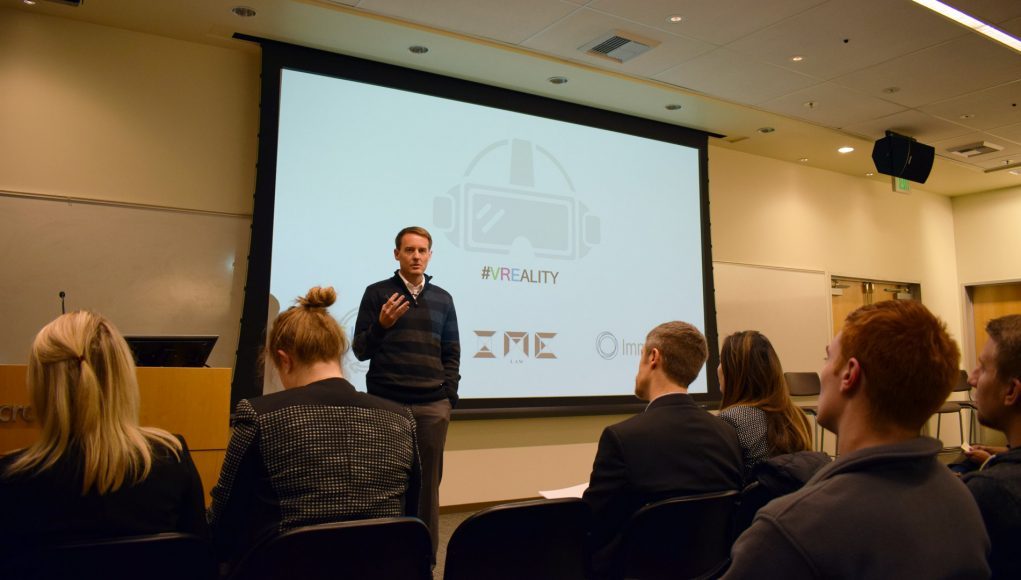Don’t Raise Money Without Seeking Legal Advice First
Whether it be through crowdfunding sites, institutional investors, or even a wealthy aunt, there are a lot of different paths for raising money for your VR or AR idea. Some of these options, however, come with legal requirements.
“If someone gives you money, and they are looking to make money off of your efforts, that’s a security,” says Carleton. “If you haven’t done securities compliance and you’ve taken someone’s money, then you owe them a full refund plus interest, plus attorney’s fees. And if you can’t pay that back, someone could go to jail.”
Resources Exist for Cash-strapped Startups
 During the question and answer session of the panel, an audience member brought up the concern that VR startups often have extremely limited resources and for many, consulting with a lawyer seems financially out of reach. Fortunately, the panel was able to offer some suggestions for young companies without a lot of spare cash.
During the question and answer session of the panel, an audience member brought up the concern that VR startups often have extremely limited resources and for many, consulting with a lawyer seems financially out of reach. Fortunately, the panel was able to offer some suggestions for young companies without a lot of spare cash.
The first option, recommended by Carleton, is to seek out a legal clinic. Legal clinics will often provide pro bono services to clients that could not otherwise afford legal aid. There are also self-help resources available on the web, but he warns that “there are a lot that are terrible.”
Another option is to contract with a startup lawyer that is willing to work on either a deferred or contingency basis. Matt Hooper explains:
“Most good startup lawyers will say: ‘We’ll represent you, we’ll go ahead and get the documentation you need to take that money the people want to give you, and then you’ll pay us once you get the money.’”
This allows startups that are “pre-money” to start the legal work that is best carried out sooner rather than later. For anyone who is still on the fence about starting the legal process for their company, Hooper says to remember that “it’s exponentially more expensive to fix something than it is to do it right in the first place.”
The Legal Landscape Can Change

Technology often outpaces the current state of the law and this is certainly the case with virtual reality. This disparity however presents an opportunity for pioneers in this field to help shape the law in ways that work best for the community. As Hooper puts it:
“We have not been a place like this in creative arts since the advent of film. When you had film come in, it was a brand new platform. It was a wide open world and anybody could be successful in that world. Then once the studios developed, you got into this place where there were new platforms for audio-visual works, but they were all owned by the same basic people,” he said. “If you took a movie and put it on a new technology like a VHS tape, it was still Warner Bros. making the money. DVD? Warner Bros. Video-on-demand? Still Warner Bros. and maybe Comcast… Now we are in this place with VR where we can rewrite the monetization structure because it’s a brand new platform for a brand new type of work that hasn’t existed before. I’m excited to be a part of that.”







